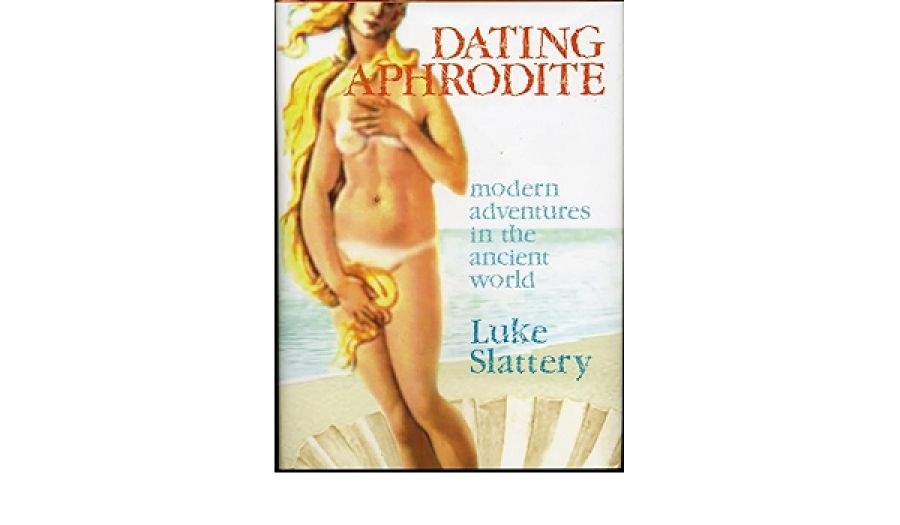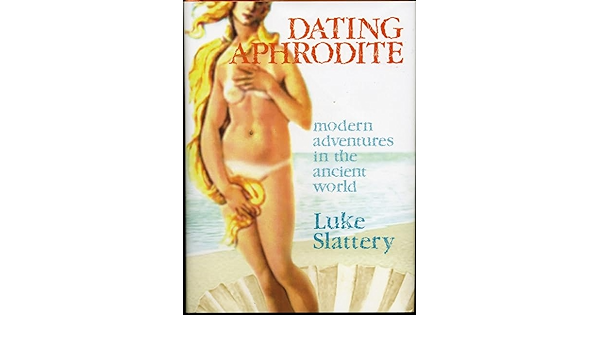
- Free Article: No
- Contents Category: Literary Studies
- Review Article: Yes
- Article Title: Expeditions around the psyche
- Online Only: No
- Custom Highlight Text:
Reading Luke Slattery’s Dating Aphrodite, I was reminded of dining once with the classical scholar Bernard Knox and the poet Anthony Hecht. Neither man was young: each had experienced remarkable and appalling things during World War II: and both had found ways of transposing those experiences into the register of art. They were at once unillusioned and instinctively creative.
- Book 1 Title: Dating Aphrodite
- Book 1 Subtitle: Modern adventures in the ancient world
- Book 1 Biblio: ABC Books, $32.95 hb, 270 pp
- Book 1 Cover Small (400 x 600):

- Book 1 Cover (800 x 1200):

To call the book an essay may imply both discipline and liberty, and these are to be found here. Slattery is a lucid expositor, whether of Greek philosophical traditions or of the mythology which those traditions encountered and, to a degree, subsumed. He is also a skilful narrator of his own fugitive experiences, as befits a highly focused journalist. But he can keep imagination on the stretch, too; can be nerved by admiration into question. When, for instance, he writes that ‘Homer doesn’t so much describe a landscape as sing a dreamscape into fantastical life’, or that ‘The true hero, the true subject of the Iliad, is man’s journey from savagery to civilisation’, or that ‘When the Anzacs cooled their rage and called across the trenches to “Johnny Turk” they were echoing Homer’s song. They were anglicising the Turk, just as Homer had hellenised the Trojan’, the propositions invite us to press on, even while they crystallise in the mind.
Very often, and whether or not an author intends that it should be so, accounts of travel are tantamount to autobiography – are expeditions around the psyche. Dating Aphrodite is, to a degree, of that kind. Slattery’s Greece is, in part, Homer’s gift, but it is also a locale of his own riding, tramping and lolling. Before he could get there, he had been magicked as a child and as a younger man by Homer, and if as he says, ‘Re-readings of the Iliad ... have brought me closer to the texture of the work while dimming its lustre’, it is clear that the poem goes on burning in his consciousness, and that it has done so even when he has been in widely differing milieux. Hopkins said that what you look at hard enough seems to look back at you, and that is what has happened to Slattery. Under the stimulus of that experience, he asks, early in the book:
How did the lauded and light-infused civilisation of fifth-century Athens emerge from this nihilistic world of death-intoxicated warriors? How did the civilisation that gave us the words for academy, school, history, philosophy, logic, poetry, grammar, rhythm, harmony, melody, music, chorus, comedy – the civilisation that charted and then colonised our interior life – evolve from the battlefield between the beached Achaean ships and the walls of Ilion where hunters pursue their human prey?
In the event, we do not of course find a neatly packaged answer to this question: but the question in effect animates an array of later probings, whether into Greek mythology and philosophy, or into the complexities of our own behaviour. Samuel Johnson always regretted that he was not able to make a personal Grand Tour to the Mediterranean, that cradle of all that he prized most, namely the Classical and the Christian. Slattery has little good to say of Christianity, but like Johnson he assumes that the Classical is a deep repository of insight and of wisdom, even though the cast of these things is sometimes arcane or at least elliptical. He knows that if myth is a mask, it is also warm with human presence.
One section of the book is a celebration of the writings and the figure of Patrick Leigh Fermor, the English memoirist whose books have given pleasure to many, myself among them. Slattery says of Fermor’s A Time of Gifts (1977), ‘I didn’t so much read this book as drink it down, run a sleeve across my mouth and ask for another’; and it would be reasonable for him to hope for a similar reaction to his own book, which does indeed have some of Fermor’s imaginative hospitality and his brio. Slattery has put his cards on the table from the beginning, but, like any good essayist, he continues to play his hand out creatively. Near the end of Dating Aphrodite, he writes:
Retro is a fashion. Nostalgia, on the other hand, is a mood, a sentiment, a drive; a love of the past. Its historical association with melancholy seems, however, to strike the wrong note today. Language in this instance has failed to keep pace with culture. We need a name for the good nostalgia: the nostalgia that conducts us to the past but does not abandon us there. Is there a great literary work whose theme is not a search for lost time? Nostalgia is the tenth Muse.
He will get no argument from me about this position. Traditionally, the mother of the Muses was Memory, and when she is exiled, the Muses tend to be presided over by some pretty rum crones. But not, if he can help it, on Luke Slattery’s watch.


Comments powered by CComment